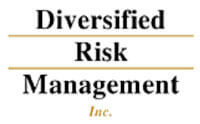Sexual Harassment Investigations
Sexual Harassment investigations are more important than ever to protect and defend employers from sexual harassment lawsuits. Plaintiffs continue to sue employers for sexual harassment in ever-increasing numbers.
Our sexual harassment investigators will learn your company’s policies, procedures, rules, and organization culture to aide in the information-gathering process.
Sexual harassment investigations require interviews of the complainant(s), witnesses, and finally the alleged harasser(s).
The interviews are performed without coercion, threats, or promises. The individuals’ admissions are detailed in both written and tape-recorded form in the presence of a designated company management witness.
Our firm does not make any recommendations concerning the form of disciplinary action to be taken. At the end of the investigation, we will provide a detailed report to assist management and their counsel in their decision making.
Finally, we can provide post-investigation recommendations regarding sexual harassment prevention, education, and training.
How to Help Avoid and Prevent Sexual Harassment in the Workplace
Sexual harassment is a form of sex discrimination that violates Title VII of the Civil Rights Act of 1964.
There are two general forms of sexual harassment. They include unwanted sexual contact and a hostile work environment.
Unwanted sexual contact occurs when one employee propositions another employee. This can include unwanted touching.
A hostile work environment is created when an employee makes repeated comments on another employee’s appearance, circulates obscene pictures, staring/leering, asks about an employee’s sex life, or tells offensive sexual jokes.
The best way to prevent harassment is through policies, training, and management supervision.
The following measures help protect employees:
- Have a sexual harassment policy in place.
- Communicate the policy effectively to employees.
- Make a reasonable effort to train all employees regarding the sexual harassment policy.
- Provide Sexual Harassment Training. Document all training sessions and attendees.
- Provide clear and effective procedures for employees to follow when they perceive sexual harassment has occurred.
- Have a procedure in place to investigate sexual harassment incidents when they are reported.
- Apply the policy quickly and consistently when harassment is alleged.
An organization will be better able to defend itself against sexual harassment claims if it has a policy prohibiting such conduct. The employer’s employee handbook should describe the policy and provide an effective procedure for resolving harassment complaints internally.
The basis of defense in harassment suits is simple. Where (1) an employer can prove that it has exercised “reasonable care” to prevent and promptly correct any sexually harassing behavior; and (2) the employee plaintiff unreasonably failed to take advantage of any preventative or corrective opportunities provided by the employer, or otherwise unreasonably failed to avoid harm; then (3) the employer will not be liable for the hostile work environment to that point.
Recent court decisions, federal guidelines, and state laws make it essential for all employers to provide employees harassment prevention training. See, e.g. Faragher v. City of Boca Raton (U.S. Supreme Court), Gaines v. Bellino (New Jersey Supreme Court).
Organizations that provide such training may:
- Avoid punitive damages in employee lawsuits
- Assert a defense to harassment lawsuits
- Follow federal guidelines established by the EEOC
- Follow state laws and guidelines
Studies suggest anywhere between 40-70% of women and 10-20% of men have experienced sexual harassment in the workplace. In 2003, approximately 15,000 sexual harassment cases were brought to the Equal Employment Opportunity Commission (EEOC) and the number is increasing each year. According to the EEOC, the number of sexual harassment complaints filed by men has more than tripled in recent years. Currently, approximately 11% of claims involve men filing against female supervisors.
Contact us today to learn more about our sexual harassment investigation services.
